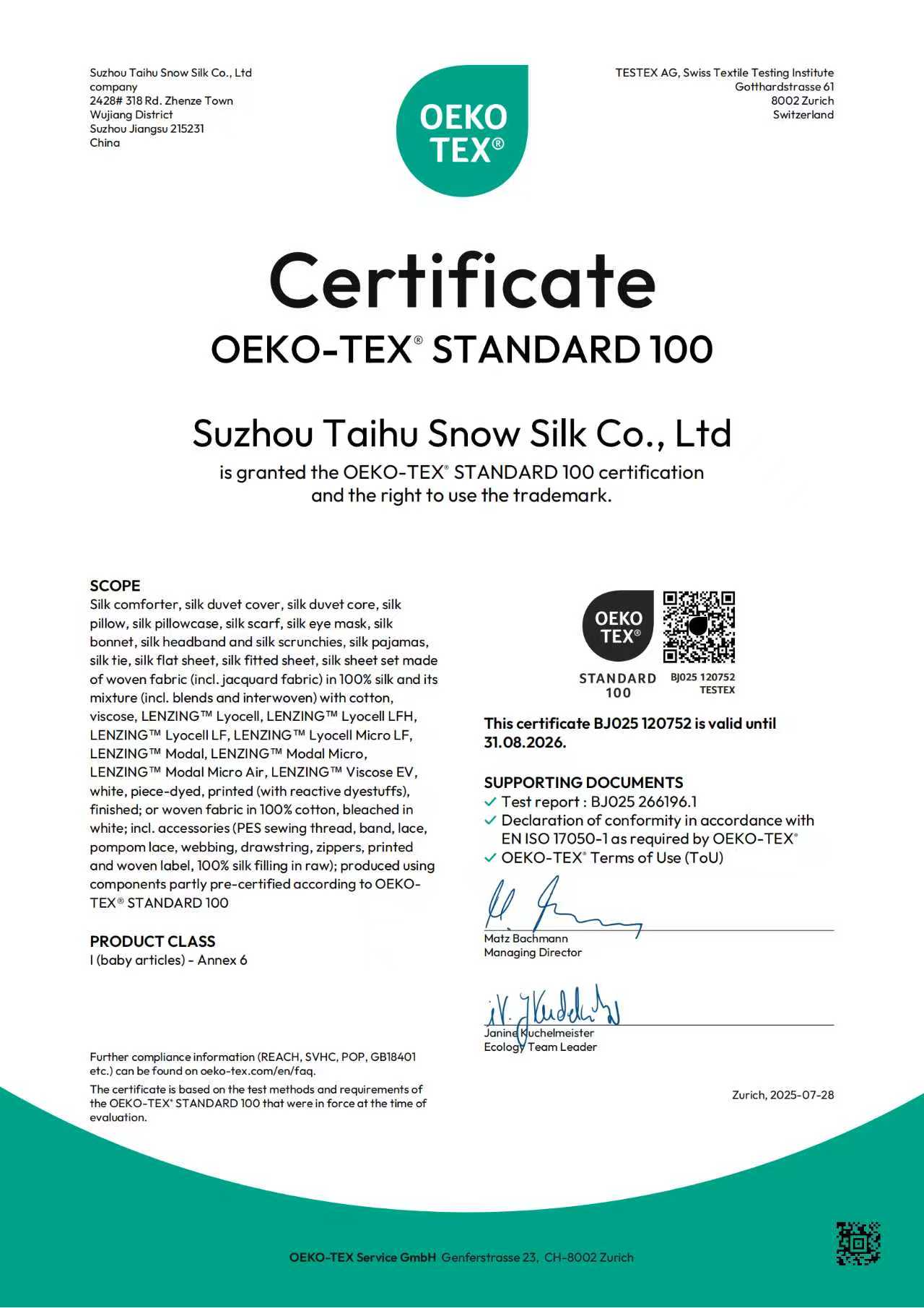
THX Silk Meets OEKO-TEX® Standards | Confidence in Textiles
Our silk products are certified by OEKO-TEX® Standard 100, one of the world’s most rigorous textile safety standards.
This certification guarantees that every step of our silk production — from raw materials to finished fabrics — is tested and verified to be free from harmful substances. Safe for everyday use and gentle on your skin, our silk offers you and your family a healthy, trustworthy, and luxurious experience.


